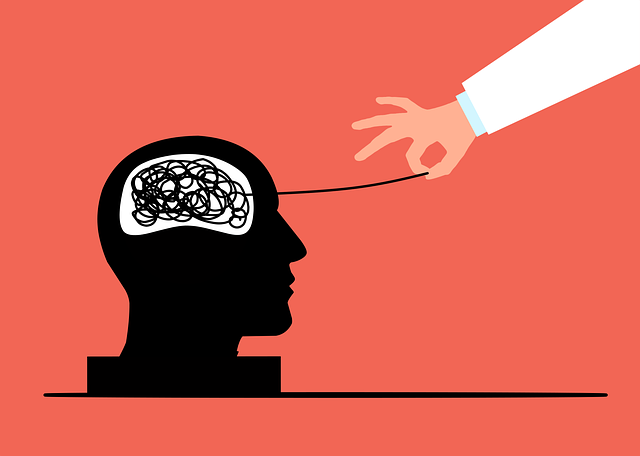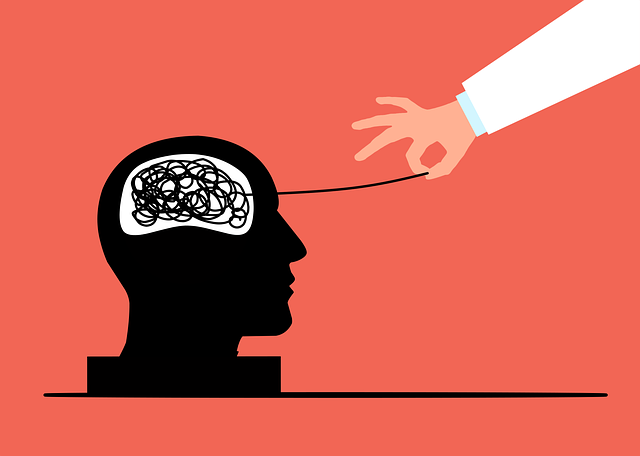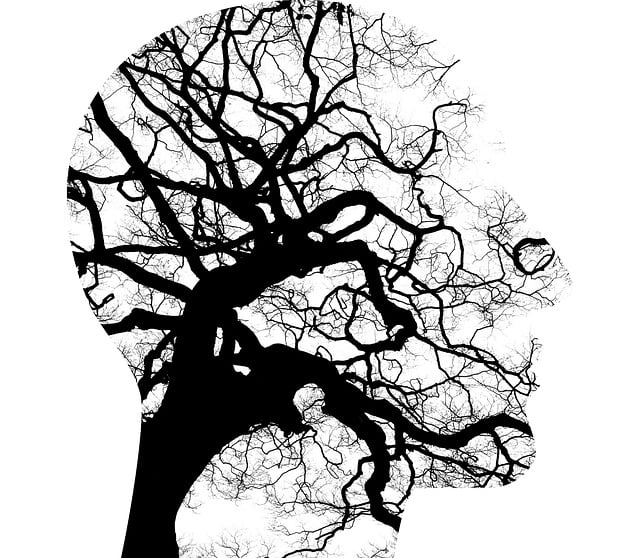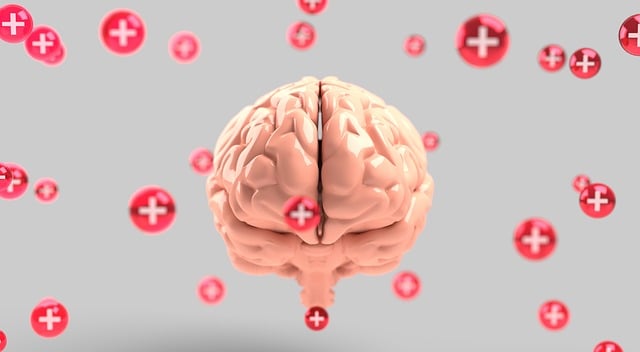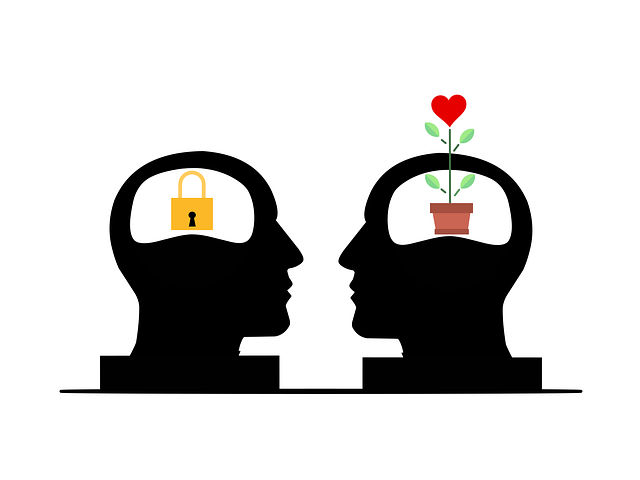In the diverse healthcare landscape of Colorado Springs, cultural competency is vital for equitable access to quality care. Training in this area improves patient-provider relationships and communication, especially for mental health services like Colorado Springs Grief Counseling Therapy. Through education, role-playing, and real-world application, providers develop skills to create safe, supportive environments for culturally diverse patients. Specialized training, risk assessment, and mental wellness coaching by Colorado Springs Grief Counseling Therapy equip professionals to navigate diverse populations empathetically, bridging healthcare accessibility gaps. Effective training requires tailored interactive workshops, case studies, and role-playing scenarios, with content addressing local community challenges like stress management. Evaluating training effectiveness through pre/post assessments, surveys, and focus groups is crucial for continuous improvement and positive mental health outcomes in diverse communities.
In today’s diverse healthcare landscape, cultural competency is no longer an option but a necessity. This comprehensive guide explores the vital role of training in enhancing patient care, especially through the lens of Colorado Springs Grief Counseling Therapy (CSGCT). We delve into effective strategies for designing programs that foster understanding and empathy among healthcare providers, highlighting key sections on measurement and continuous improvement to ensure lasting impact.
- Understanding Cultural Competency in Healthcare: A Necessity in Modern Practice
- The Role of Colorado Springs Grief Counseling Therapy in Building Cultural Bridges
- Designing Effective Training Programs for Healthcare Providers
- Measuring Impact and Promoting Continuous Improvement in Cultural Competency
Understanding Cultural Competency in Healthcare: A Necessity in Modern Practice

In today’s diverse healthcare landscape, cultural competency is no longer an option but a necessity. It involves understanding and respecting the cultural beliefs, values, and practices of individuals from different backgrounds, ensuring equitable access to quality care. This is especially pertinent in vibrant communities like Colorado Springs, where a mix of cultures and ethnicities coexists, requiring healthcare providers to be adept at navigating these complexities. By embracing cultural competency, healthcare professionals can foster better patient-provider relationships, improve communication, and ultimately enhance the overall experience for diverse patient populations, including those seeking Grief Counseling Therapy in Colorado Springs.
Training in this area equips providers with the skills to recognize and appreciate cultural differences, enabling them to offer Trauma Support Services that are sensitive and tailored to individual needs. This is crucial for addressing Mental Health Awareness, as many cultural groups may have unique perspectives on mental illness and healing. Through education, role-playing, and real-world application, healthcare providers can develop emotional regulation skills, ensuring they remain calm and composed when dealing with culturally diverse patients, thus creating a safe and supportive environment.
The Role of Colorado Springs Grief Counseling Therapy in Building Cultural Bridges

Colorado Springs Grief Counseling Therapy plays a pivotal role in fostering cultural competency among healthcare providers. By offering specialized training and support, this therapy service helps professionals navigate the complex landscape of diverse patient populations with empathy and understanding. The therapeutic environment encourages mental health professionals to explore their own biases and develop strategies for delivering culturally sensitive care.
Through risk assessment for mental health professionals, these programs identify potential challenges related to cultural differences, enabling practitioners to strengthen their resilience building skills. The integration of mental wellness coaching programs development further enhances the ability to connect with individuals from various backgrounds. Ultimately, Colorado Springs Grief Counseling Therapy contributes to bridging cultural gaps, ensuring that healthcare services are accessible and tailored to meet the unique needs of every patient.
Designing Effective Training Programs for Healthcare Providers

Effective healthcare provider cultural competency training programs require careful design to meet the diverse needs of both providers and patients. In Colorado Springs Grief Counseling Therapy, for instance, trainers should consider incorporating a mix of interactive workshops, case studies, and role-playing scenarios to ensure engagement and practical application. These methods not only foster a deeper understanding of various cultural perspectives but also equip healthcare professionals with emotional well-being promotion techniques and stress management skills, essential for navigating complex interpersonal dynamics.
A key aspect in designing such programs is tailoring content to address specific challenges within the local community. For example, Stress Management Workshops Organization can play a vital role in identifying prevalent cultural stressors and incorporating them into training materials. By doing so, training sessions become more relevant and impactful, enhancing participants’ ability to provide compassionate care that respects and validates diverse experiences. This tailored approach not only enhances patient outcomes but also contributes to the overall emotional resilience of healthcare providers.
Measuring Impact and Promoting Continuous Improvement in Cultural Competency

Evaluating the effectiveness of cultural competency training is a vital step in ensuring its long-term success and positive impact on healthcare outcomes. Measuring the impact involves collecting qualitative and quantitative data through various methods, such as pre- and post-training assessments, participant feedback surveys, and focus groups. These tools help gauge knowledge retention, attitude shifts, and changes in clinical practice related to cultural competency. By comparing scores and observations before and after training, organizations can identify areas of improvement and track progress over time.
For instance, a Colorado Springs Grief Counseling Therapy organization conducting such assessments might find improvements in participants’ ability to navigate cross-cultural conversations, reduce anxiety relief techniques for diverse populations, and enhance stress management skills. These insights can then guide the development of targeted workshops or educational resources tailored to specific cultural topics, fostering continuous improvement within the organization. Such an approach ensures that the training remains relevant, effective, and aligned with the evolving mental wellness needs of diverse communities, including those in Colorado Springs.
Healthcare provider cultural competency training is no longer a choice, but an indispensable practice. As diverse communities become the norm, programs like those offered by Colorado Springs Grief Counseling Therapy play a vital role in bridging cultural gaps. By designing effective training that focuses on empathy, communication, and understanding, healthcare providers can deliver more personalized and compassionate care. Measuring the impact of these initiatives ensures continuous improvement, fostering an environment where every patient feels valued and respected.

